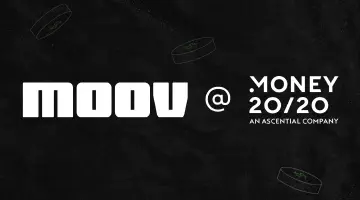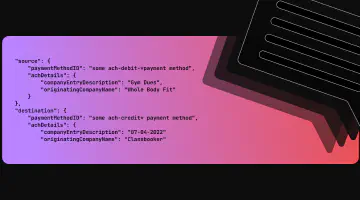
Why I joined Moov: Holly Caliri
I used to tell my dad, who was a career military man, that I wanted to be a pilot. And I didn’t mean commercial or cargo flights—I wanted to fly fighter jets. The real deal.
Dad would tell me, “Look, I admire your grit, but…” Then he’d run down all the reasons I couldn’t be a fighter pilot. I was too short; I was a girl (this was before women were allowed to fly combat missions); I didn’t have good enough uncorrected vision. But, most importantly, the number one reason I couldn’t be a pilot was obvious to my dad: “Holly, you can’t take an order to save your [expletive] life.”
It was a hundred percent true. I was a bit of a thrill seeker. Not a bad kid, really, but I wanted to do my own thing. I was independent. My mom was a little too protective, so I’d creatively find ways around her restrictions. My dad, on the other hand, simply evaluated how I dodged her rules. If my shoes weren’t in the same place in the morning, he’d know that I’d snuck out. Instead of ratting me out, he’d secretly give me notes. So, my mom taught me problem-solving skills, and my dad taught me refinement. Their parenting styles really set me on the path of how I approach my life and career. More about that later.
When I started college, I wanted the experience to be challenging. I wanted to push myself. I left Alabama to go to school in New England, and I was coming in with some AP credits and a good GPA. I wanted to double-major in business and computer science—something unheard of for a freshman. Instead, my college counselor convinced me to pursue a business degree, and while I enjoyed business, I wanted to stay as close to technology as possible. Eventually, I graduated, worked in numerous tech-adjacent roles, and then something interesting happened.
After one career counseling session, everything changed.
I took the Myers-Briggs Indicator and several other interest inventories, and I did something no one ever wants to do. I stumped the career counselor. The guy was absolutely dumbfounded. He’d never seen results that were so at odds with each other. My Myers-Briggs type was all about innovation, risk-taking, and having a low tolerance for repetition. But my Interest Inventory came back with careers like accountant, military service, and data entry, which are very repetitive and jobs I’d never do!
But, as we chatted, we eventually started to make sense of it. My interests and personality do actually fit together. Turns out, I’m the person you call when there’s a new thing no one’s figured out yet, or something’s broken, or there are a bunch of moving parts and pieces all over the place.
Realizing that, everything clicked into place. And I realized my dad had given me a lot more than performance assessments after sneaking out. He wasn’t the sort of rank-and-file military guy you might imagine. He was a problem solver. Every time he took a new post, they’d send him to the most messed up thing on the base. They’d say, “Hey, Jerry, this is all messed up. Nobody knows what’s coming and going. Go fix it.” And he’d go in for three months, six months, or a year to get to the bottom of things. He’d figure out the need—what’s working, what’s not, and how to make it better. And he’d build something great, then figure out who had the skill set to keep it running, hand it off, and move on.
Turns out I’m very much the same way.
Share thisI don’t want to work in an orderly space. I want to create order out of chaos. In fact, I thrive in chaos. It’s become my professional mantra.
Since then, I’ve worked at places ranging from startups to big banks—but even when I was at the big banks, I always had sort of unique unicorn roles. I didn’t want a cookie-cutter position or a clear-cut manual to follow because if there’s already a rule book, what am I gonna do? I’m not interested in following the rules. I want to write my own.
That’s why I came to Moov. Our whole mission is to take all of these parts of the payments industry that are built on legacy tech—all this stuff that’s been an albatross around the neck of the industry—and build something new, something better, that no one’s ever built before. To create order out of chaos. Everything that Wade says every day, all the things he wants to fix—that’s what I thrive on, and I couldn’t be happier about it.
Right now, I have a foot planted in each of these two camps: How do we take legacy infrastructure and make it better so our clients don’t have to worry about it? And, on the other side, how do we build new things that make payments easier and faster for our customers and their customers? Add in all the regulatory requirements on all things financial; mix in the limitless use cases and approaches to accepting, storing, and sending money—and the needs of specific verticals. It’s a lot. It’s a special kind of chaos.
And it takes a special kind of team to make a difference in that chaos—and a special approach to hiring and working together.
Share thisWe all have equal voices here. There’s no ego, no “that’s not the right way to do it” attitude.
Just ideas and expertise and collaboration and curiosity. (And maybe just a little bit of chaos—but the good kind, the kind that inspires creativity and growth.)
My dad would love it here. And I love it here. I might not be flying fighter jets (yet!), but young Holly would be happy that I’m still not taking any [expletive] orders. I’m writing my own rule book, and so is Moov.
That’s why I joined Moov. And why you should too.






